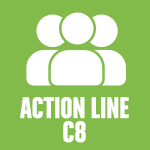Digital technologies and accessibility: from rhetoric to reality (interactive hands-on workshop)
UNESCO Chair in ICT4D (Royal Holloway, University of London) and Inter-Islamic Network on Information Technology (INIT)

Session 131
This very practical hands-on workshop will involve all participants in sharing their experiences on how we turn the many good policies and strategies relating to ICTs and accessibility/disability into practical actions on the ground that will help to empower those with all types of disabilities. It draws on experiences gained during similar workshops held elsewhere by the organisers, including at the Commonwealth Ministerial Summit on e-Accessibility held in London in 2012, a Caribbean workshop on ICTs for people with disabilities held in Antigua in 2015, and an expert meeting on Disability-inclusive technology and innovation held at UNESCAP in Bangkok in 2018. It begins with two short opening presentations of examples of activities that have been undertaken to contribute to empowering peopel with disabilities through ICTs. Participants will then co-create mind-maps highlighting the challenges that remain to be overcome in turning policy into practice, and ways though which these can be overcome. This will then be developed into a declaration on action which all participants will subsequently be invited to share more widely through their networks.
Moderator
Tim Unwin, Chairholder, UNESO Chair in ICT4D
Speakers/Panellists
Moderator: Tim Unwin, Chairholder, UNESO Chair in ICT4D
Opening Speakers: Monica Halil Lövblad, Director, Copyright Management Division, WIPO; and Dr Akber Gardezi, Assistant Professor,
Inter Islamic Network on Information Technology
Session's link to WSIS Action Lines
-
 C3. Access to information and knowledge
C3. Access to information and knowledge
-
 C4. Capacity building
C4. Capacity building
-
 C8. Cultural diversity and identity, linguistic diversity and local content
C8. Cultural diversity and identity, linguistic diversity and local content
-
 C10. Ethical dimensions of the Information Society
C10. Ethical dimensions of the Information Society
People with disabilities represent some 10% of the world's population, but they are also among the most marginalised. If ICTs are not designed to be inclusive, they exclude people. Whilst many countries now have policies in place to help empower people with disabilities through ICTs, the practical reality is that most still remain excluded from the digital transformations that are taking place in their countries. This session seeks to draw on the expertise of participants to highlight the most important things that still need to be done so that those with disabilities can indeed participate fully in the contemporary digital world. Hence, this session links directly to the following main WSIS Action Lines: enabling people with disabilities to gain access (C3), building capacity amongst policy makers and practitioners (C4), supporting the cultural diversity and identity of people with disabilities (C8), and the moral agendas that are important in contributing to their empowerment (C10).
Session's link to Sustainable Development Process
-
 Goal 4: Ensure inclusive and equitable quality education and promote lifelong learning opportunities for all
Goal 4: Ensure inclusive and equitable quality education and promote lifelong learning opportunities for all
-
 Goal 8: Promote inclusive and sustainable economic growth, employment and decent work for all
Goal 8: Promote inclusive and sustainable economic growth, employment and decent work for all
-
 Goal 10: Reduce inequality within and among countries
Goal 10: Reduce inequality within and among countries
People with disabilities represent some 10% of the world's population, but they are also among the most marginalised. If ICTs are not designed to be inclusive, they exclude people. Whilst many countries now have policies in place to help empower people with disabilities through ICTs, the practical reality is that most still remain excluded from the digital transformations that are taking place in their countries. This session seeks to draw on the expertise of participants to highlight the most important things that still need to be done so that those with disabilities can indeed participate fully in the contemporary digital world. This session is therefore relevant to all of the SDGs, but especially to the following: SDG4 - ICTs can contribute very significantly to en abling peopel with disabilities to gain the quality lernng experiences tghatv will enable them to fulfil their lives; SDG8 - ICTs can help greatly in enabling people with disabilities to gain decent work and thereby contribute to both their own fulfilment and to economic growth; and SDG10 - empowering people with disabilities will contribute significantly to reducing indequality wihtin and among countries.